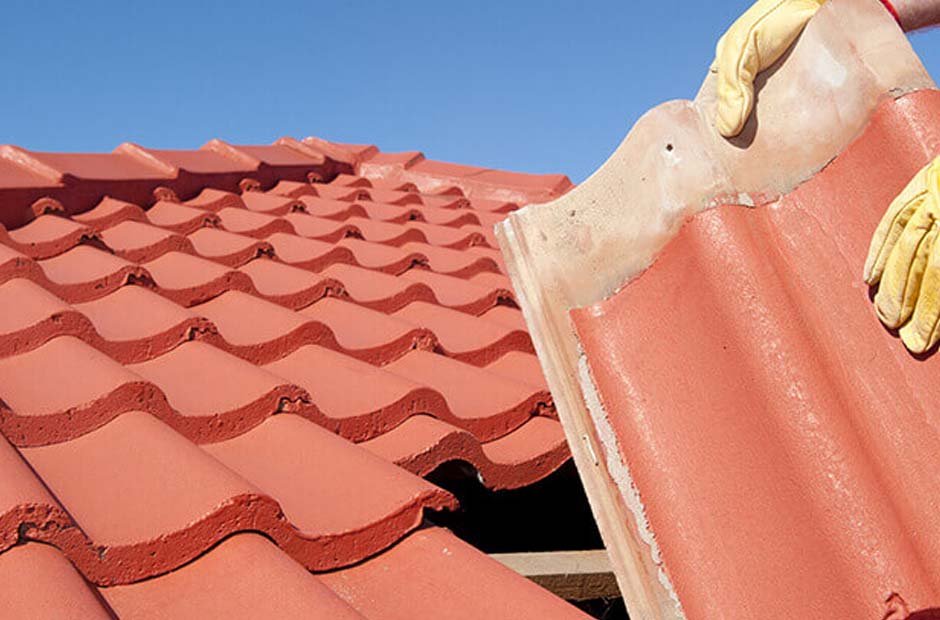Choosing the right roofing company is crucial for ensuring the longevity and quality of your roof. A trusted and reliable contractor can provide the necessary services to keep your roof in excellent condition, prevent costly repairs, and enhance the overall value of your home. We will explore how to evaluate a roofing company’s reputation and what factors to consider when selecting a contractor for your roofing needs. You can learn more about Hiner Roofing OKC LLC if you are looking for a professional.
Evaluating Roofing Company Reputation and Selecting a Contractor
Researching Company Background and Experience
One of the first steps in choosing a trusted roofing contractor is researching the company’s background and experience. A company with a long history in the roofing industry is more likely to have the necessary knowledge and skills to handle a wide range of roofing projects. Start by looking into how long the company has been in business and what types of roofing services they offer.
Experience is a key indicator of a company’s ability to deliver quality work. A company with many years of experience will likely encounter and resolve various roofing issues, making them better equipped to handle your project. Additionally, experienced contractors are often more familiar with local building codes and regulations, ensuring that your roofing project complies with all legal requirements.
When researching a company’s background, consider looking for affiliations or memberships with professional organizations, such as the National Roofing Contractors Association (NRCA). Membership in such organizations indicates a commitment to industry standards and continuous professional development.
Checking Licenses, Insurance, and Certifications
Ensuring that a roofing company holds the necessary licenses, insurance, and certifications is crucial for protecting yourself and your property. A licensed contractor has met the standards and regulations set by the state or local authorities, demonstrating their capability to perform roofing work.
Insurance is equally important, as it protects you from potential liabilities in case of accidents or damages during the roofing project. A reputable roofing company should carry general liability and workers’ compensation insurance. General liability insurance covers any damage to your property, while workers’ compensation insurance covers injuries to the contractor’s employees. Request proof of insurance and verify its validity before hiring a contractor.
Certifications from roofing manufacturers can also indicate a contractor’s reliability and quality of work. Manufacturers often provide training and certification programs for contractors, ensuring they know how to install and maintain specific roofing products. Certified contractors are more likely to provide high-quality workmanship and adhere to manufacturer guidelines, which can be beneficial for warranty purposes.
Reading Reviews and Testimonials
Customer reviews and testimonials are valuable resources for evaluating a roofing company’s reputation. Positive reviews and testimonials from previous clients can provide insights into the company’s reliability, quality of work, and customer service. Look for reviews on reputable websites such as Google, Yelp, and the Better Business Bureau (BBB).
When reading reviews, pay attention to recurring themes or patterns. Consistently positive feedback about the company’s professionalism, timeliness, and quality of work is a good sign. Conversely, repeated complaints about missed deadlines, poor communication, or subpar workmanship should raise red flags.
It is also helpful to ask the roofing company for references from recent clients. Speaking directly with past clients can provide additional insights into their experiences and satisfaction with the contractor’s work. Ask about the overall quality of the project, the contractor’s responsiveness to issues, and whether they would recommend the company to others.
Requesting Detailed Estimates and Contracts
Detailed estimates and contracts are essential for ensuring transparency and avoiding misunderstandings during the roofing project. A reputable roofing company should provide a comprehensive written estimate that includes a breakdown of all costs, such as materials, labor, permits, and any additional fees. This transparency helps you understand exactly what you are paying for and allows you to compare estimates from different contractors.
When reviewing estimates, be cautious of significantly low bids compared to other contractors. While a lower price may seem attractive, it could indicate using inferior materials or cutting corners on workmanship. It is essential to balance cost with quality to ensure you receive the best value for your investment.
Once you have selected a contractor, ensure that all the terms of the project are clearly outlined in a written contract. The contract should include details such as the scope of work, project timeline, payment schedule, and warranty information. A well-drafted contract protects both you and the contractor and serves as a reference point in case of disputes or issues during the project.
Assessing Communication and Professionalism
Effective communication and professionalism ensure a smooth and successful roofing project. From the initial consultation to the completion of the project, the contractor should maintain open and transparent communication, keeping you informed about the progress and any potential issues.
During the consultation, assess the contractor’s willingness to listen to your concerns and answer your questions. A reliable contractor should explain clearly and offer solutions that align with your needs and preferences. They should also be responsive to calls and emails, demonstrating their commitment to customer service.
Professionalism extends beyond communication to the contractor’s behavior, appearance, and work practices. Observe how the contractor and their team conduct themselves on-site. They should adhere to safety protocols, respect your property, and maintain a clean and organized work environment. A professional contractor is likelier to deliver high-quality work and ensure a positive overall experience.
Evaluating Warranty and After-Sales Support
A reputable roofing company should offer warranties on both materials and workmanship. Manufacturer warranties cover defects in roofing materials, while workmanship warranties cover installation-related issues. A contractor who stands behind their work with a comprehensive warranty demonstrates confidence in their quality and commitment to customer satisfaction.
It is essential to understand the terms and conditions of the warranties provided. Ensure that the warranties are clearly outlined in the contract and that you receive any necessary documentation for future reference. Additionally, inquire about the contractor’s after-sales support and their process for addressing warranty claims. A reliable contractor should be responsive to any issues that arise after the project is completed and provide prompt resolution.
Conclusion
Choosing a trusted and reliable roofing contractor requires careful consideration of several factors, including the company’s background, licenses, insurance, customer reviews, communication practices, and warranty offerings. By conducting thorough research and evaluating these key aspects, you can select a contractor who will deliver high-quality workmanship, ensure the longevity of your roof, and provide peace of mind throughout the roofing project. Investing time and effort into choosing the right roofing company is essential for protecting your home and achieving the best possible results.
















